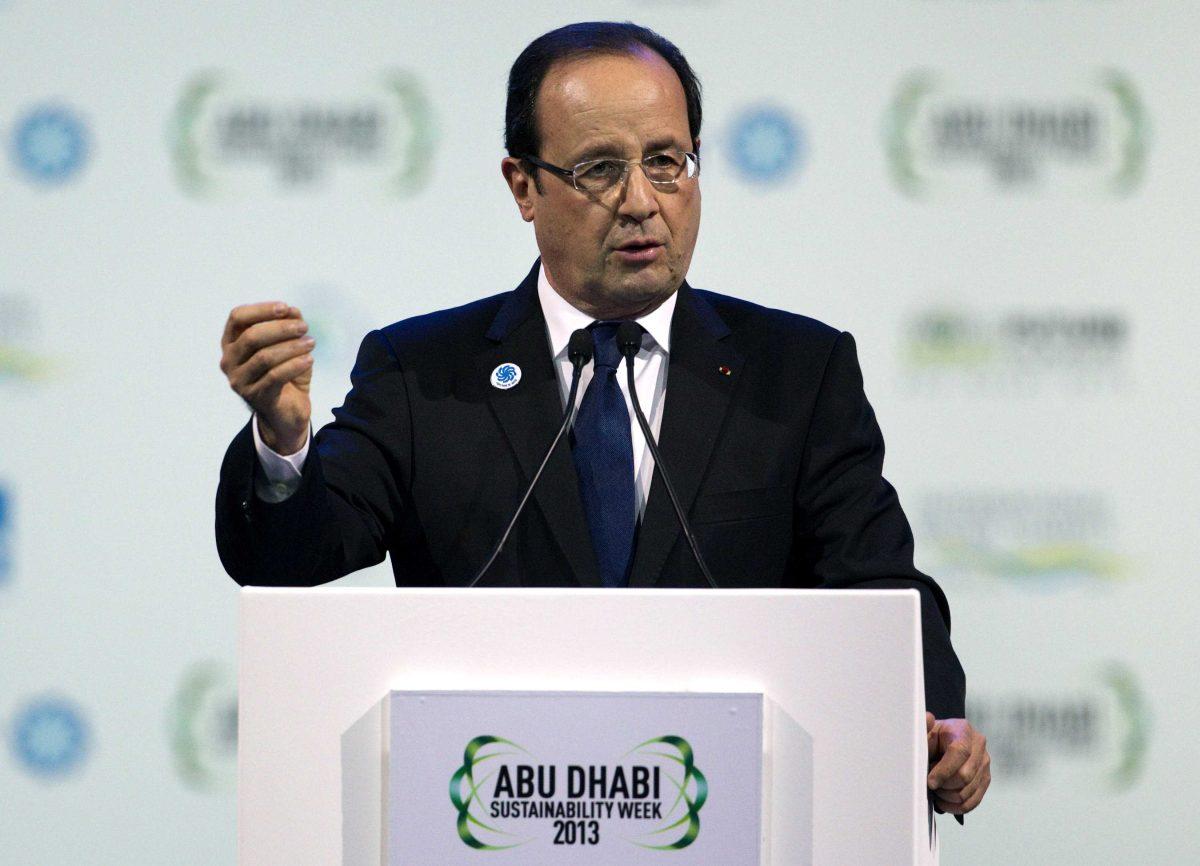Imagine if President Barack Obama made a speech today in which he said, as French President Francois Hollande famously did in a televised interview, “I hate the rich.”
Glenn Beck would probably fact-check something for once, to make sure his boundless glee could carry his voice righteously into the crazed ears of so many Fox News-trusting Republicans.
What if Obama proposed even higher tax rates, the likes of which former President Bill Clinton enforced or higher, which may be the answer to paying off the national debt in the end?
If Beck could tear himself away from talking about the government stealing our guns for two seconds, maybe he’d address it angrily and suggest a mob march on Washington.
Instead of knee-jerk anger, we need to stop, take in the facts and rationally think about the possibility that the country could be better off with higher taxes.
The most recent measure of our GDP growth is an abysmal 1.7 percent, according to World Bank.
Compare this to the late 1940s and ’50s when the annual GDP growth rate for the United States was 4.2 percent — an astronomical number.
It’s no coincidence the time of highest taxes in the United States corresponds with the country’s greatest economic growth.
During the time of our booming economy, the highest tax bracket paid a marginal tax rate around 90 percent, according to a study by the Congressional Research Service analyzing top tax rates through an economic lens.
Marginal taxes mean a person pays the 90 percent only for money earned above a certain level, not his or her entire holdings.
Currently, the same bracket that once paid 90 percent now pays 39.6 percent in marginal taxes, according to the study.
The top brackets in 1950 applied to households bringing in $1.8 million, when adjusted for inflation.
For 2013, the top bracket includes any single person who makes upward of $400,000 a year and couples who make $450,000.
Taxing income so it only affects half of what it used to is imbecilic, especially when the nation is about to try to negotiate its way out of hitting another debt ceiling.
This lack of GDP growth and economic stability is not just a U.S. problem.
France has the exact same GDP growth of 1.7 percent, but instead of promising to cut taxes like Obama, Hollande promised the French a 75 percent tax on the super-rich, or those making more than 1 million euros per year, which translates to $1.3 million.
His idea makes more sense than that of the United States, which seems to be to keep the super-rich content, supposedly starting businesses and spending more money because they have more.
Evidence has shown this type of trickle-down economics does not work.
Following former President George W. Bush’s tax cuts in 2001 and 2003, the budget surplus turned quickly to a deficit in just a year.
Despite review and denial of the proposed tax’s validity by the Constitutional Council, Hollande said he would rework the tax rate to something more agreeable to all the French, not just the popular support of those excluded from the highest tax bracket.
There were issues with his initial idea, such as the decision to word it so the indivdual would be taxed and not households.
However, it is something for the United States to consider.
We don’t have wiggle room to go back and forth on previously tried ideas that have not worked in the past or untested, hare-brained schemes that will turn the United States into even more of a laughingstock.
While the nation has spent time vilifying France and renaming fast food to serve this purpose, freedom fries and America-centric thinking will not get us out of this mess.
Maybe our government just needs to tweak some items in the tax code — anything at all — to prompt a response and eventual change.
Our tax code currently requires more than 16,000 convoluted pages. The French have fewer than 2,000. Much simpler.





